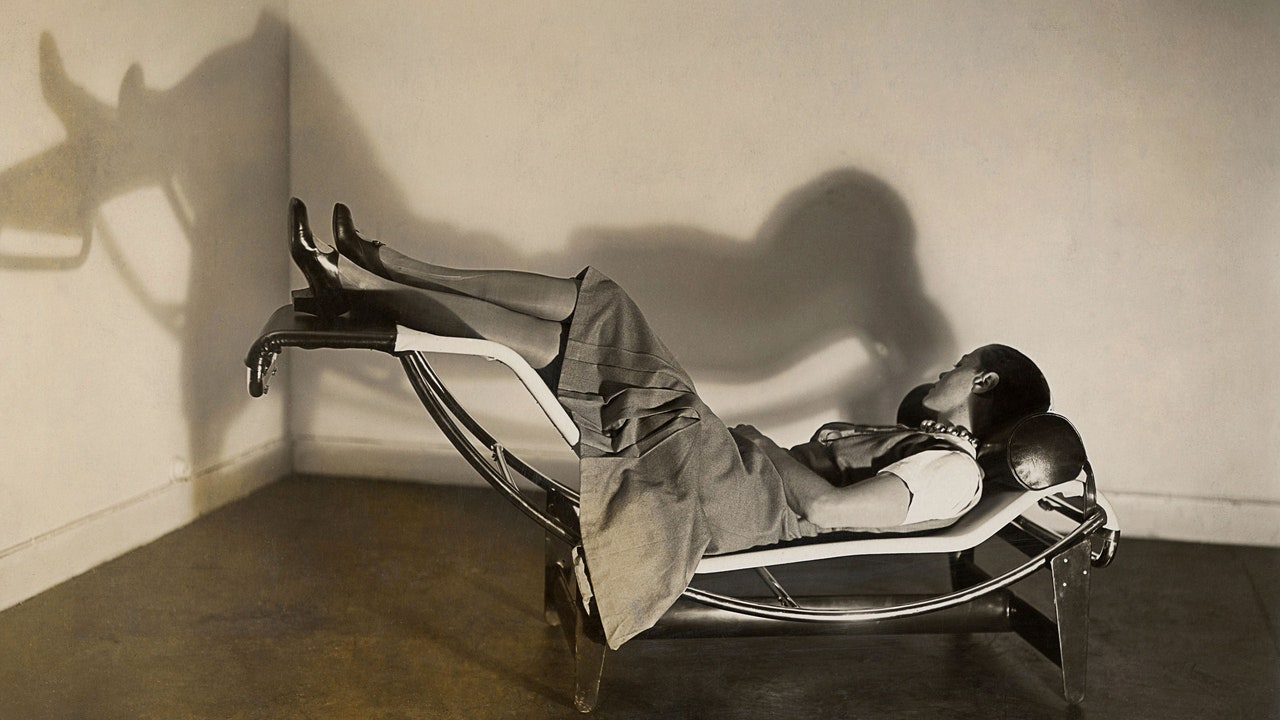In ’s 1923 manifesto Towards an Architecture, the Swiss-French architect called the home “a machine for living in.” But what did that mean for the furniture? Corbu, as his friends called him, addressed the issue with a series of sketches—nine ways of sitting—that he, alongside collaborators and , would use to inform a series of radical new furnishings debuted in 1929 at Paris’s Salon d’Automne.
One drawing, which depicted a woman stretched out in full recline, would inspire the 4 chaise longue à réglage continu or continuously adjustable lounge chair (you might know it as the LC4 but, recently, to honor all three creators, that naming convention has been changed). Looking at references that ranged from the mechanized Surrepos du Docteur Pascaud, a sort of primitive La-Z-Boy, to Thonet’s bentwood rocking chair, the trio set to work devising a seat that would allow its occupant to glide between positions—from fully upright to all the way back, legs elevated. After experimenting at length, they arrived at a base of a lacquered sheet metal—a type often used in airplanes—topped with a tubular steel sleigh and a slim cushion.

